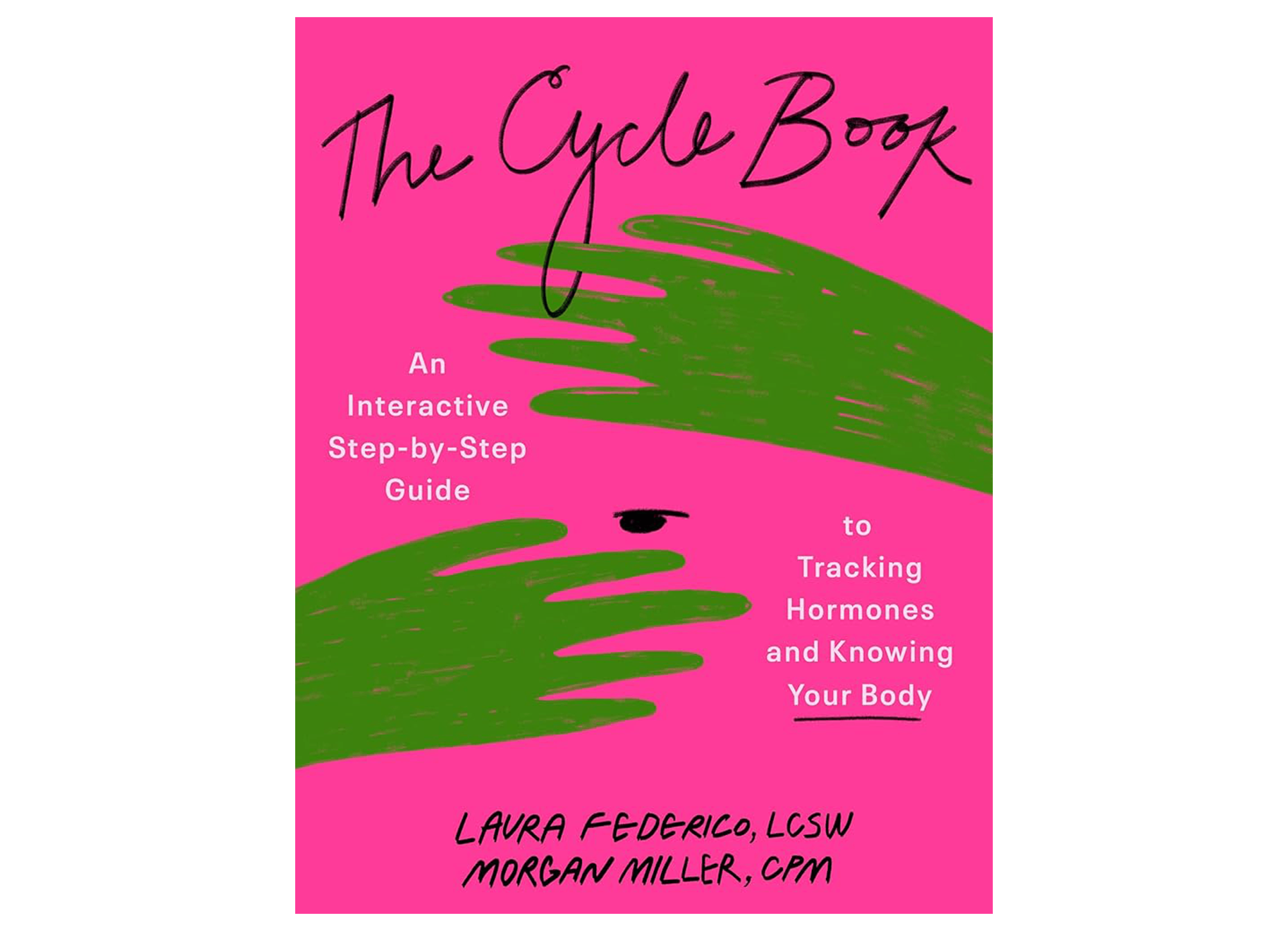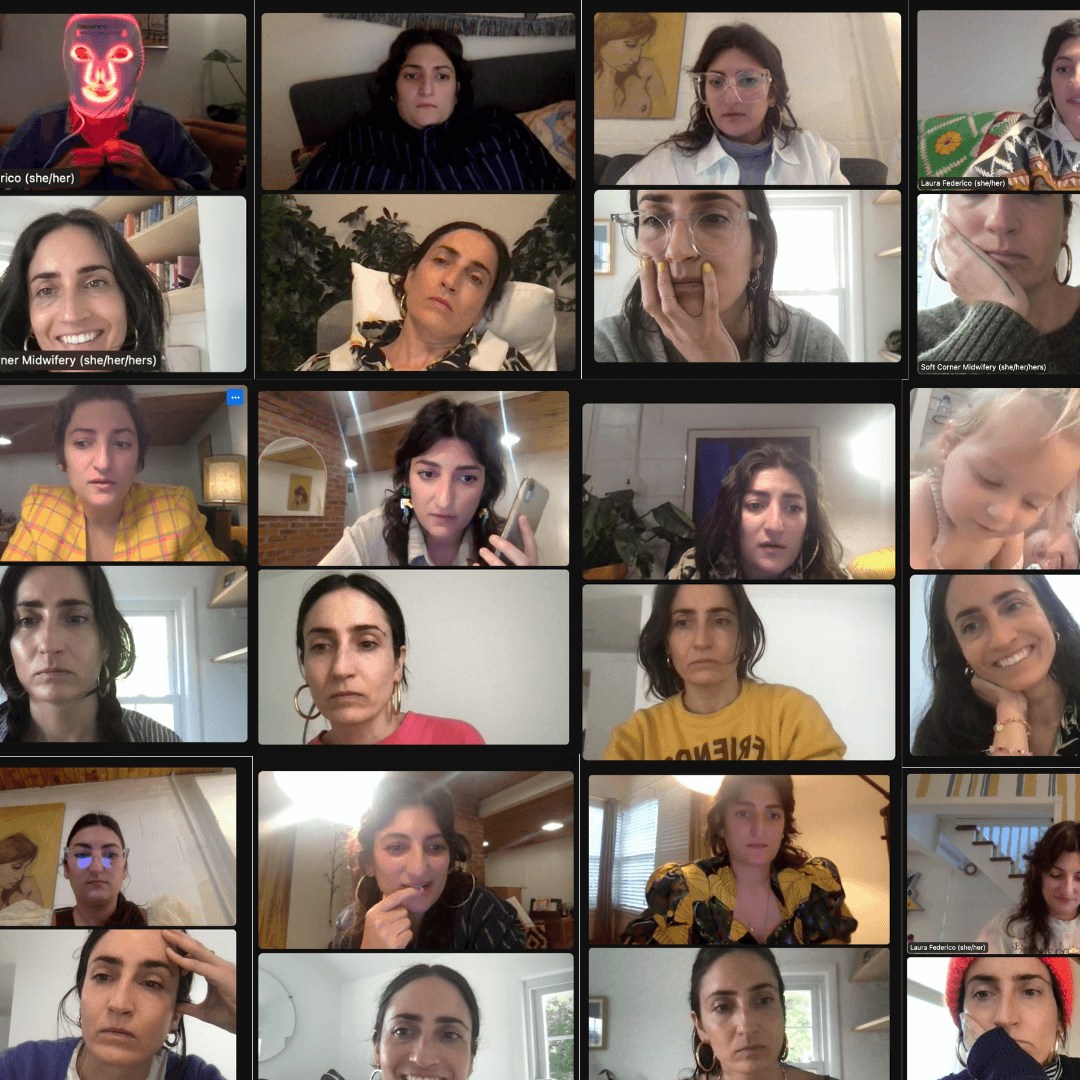
The Cycle Book
Banana, meet condom. That’s the extent to which most of us receive a sex education in the American school system. And conversations around menstruation are held laughably less, if at all. What’s often reduced to the punchline of a joke (“It must be that time of the month”) has created a lasting impact, shaping how we talk—and don’t talk—about our cycles. Periods have become an Ominous Thing with big bold capital letters; something we seldom talk about beyond the occasional cramp complaint.
Enter The Cycle Book. Hitting shelves on January 28, 2025, this step-by-step guide invites us to reclaim agency and bodily autonomy in a system that has historically failed to educate and uplift us.
We sat down with authors Laura Federico, a psychotherapist and sex therapist, and Morgan Miller, a midwife and founder of Soft Corner. Friends and longtime collaborators, they recognized a glaring gap in resources for anyone wanting to understand their hormonal cycles beyond fertility tracking (because how we feel in our bodies should be deemed important outside of motherhood, but more on that later). The Cycle Book offers a research-backed approach to cycle tracking that helps people connect the dots between the physical and emotional—before the symptoms we dismiss as minor snowball into something far bigger.

“Step into my office, even though I wish you didn’t have to”
Morgan: I've been a midwife for a little over a decade now, and I love the work. The thing that really brought me to it is the idea of fostering autonomy and helping people feel empowered to advocate for themselves throughout their reproductive lifespan. A lot of my work involves the classic midwifery tasks—catching babies, spending time with pregnant people, providing postpartum care. I'm also a lactation consultant, so I cover the full gamut.
But a significant part of my focus is on cycle tracking and holistic gynecology. It’s about looking beyond just the bleeding phase and understanding how hormones influence various aspects of our lives: mental health, metabolic systems, and more. And having Laura in my life has expanded this approach with her insight and expertise as a therapist and sex therapist. It has allowed us to integrate psychological elements into gynecological care, making it so much more comprehensive. That’s really where my passion lies right now, and I’m loving it.
Laura: Morgan and I have been really close, matching tattoo style friends, since our early twenties. And when we went into our respective fields, we would get together and be like, shit, all of the people that walk through our doors are not being given necessary information. We're meeting people in crisis when a preventative care model could have helped avoid that crisis in the first place.
Earlier in my career as a therapist—I'm a social worker by training—I worked in community mental health and crisis settings before moving into private practice. At a certain point, I realized that everyone wanted to talk about sex, but most therapists aren't really trained for that. I knew I couldn’t do the work effectively without addressing sex and how it impacts every aspect of a person's life. So I specialized in it, and it opened up so much for me.
When Morgan and I started collaborating, it all just clicked. For example, I refer clients to Morgan all the time, whether they’re exploring preconception concerns, dealing with pain, or struggling with mental health issues like OCD where hormones play a big role. Morgan and her team do this incredibly focused cycle tracking that pinpoints hormonal shifts and how they affect each person’s experience. Then we come back together and use that information to tailor our care. It’s transformative, and the impact on the patient’s mental health is astounding. You see depressive symptoms diminish, anxiety improves, and people learn to trust their bodies.
The power of pen, paper, and the forced meditation it inspires
Laura: It feels super important to move pen and paper. When we came up with the idea of The Cycle Book, we initially imagined it as an app; but then we learned the very real limitations to data protection, and decided that wasn’t the right fit for us and moved it over to book format. We feel strongly about providing a tool for people to understand their cycles that is private, safe and gives them a repository for their data that is not going to be putting them at further risk.
Morgan: A trend that Laura and I have felt in ourselves and have seen with our clients is this baseline dissociation from our minds and from our bodies. So any practice that is physically grounding, even as simple as a pen and a paper, is really effective. It’s a mindful moment that can have a huge propensity for change, and that's really what we're after: helping people have that reconnection between mind and body, instilling that trust in knowing their own bodies, even when we’re being told not to trust ourselves or trust the feelings that we have.
Our cycles are important. That’s the whole sentence. Fertility isn’t the only reason for this to be true.
Laura: We tried so hard to make education a pleasurable, joyful experience because the existing options felt like homework or were very fertility-coded. We just didn’t see ourselves in any of it. And it’s such bullshit that we don’t get to have a wide range of expression when it comes to this sort of thing. It’s always this kind of narrow focus.
Morgan: Everything that’s out there for us to understand our cycles is pretty specific in aesthetic, vibe, and tone—and the menstrual cycle is so much more than that. It’s not just about fertility and having babies. Yes, if that’s the journey you’re on, that’s in there too. But there are lots of people who are simply interested in exploring other ways their hormones are affecting their bodies.
Laura: And it can all be so disheartening. I have two kids, and when I think of the attention one gets when pregnant versus outside of that—in the same OB-GYN office—and the attention one gets postpartum after the baby is out of your body, it’s such a specific message. It sends the message that our health outside of pregnancy isn’t as important, and it makes you feel small and alone.
I’ve worked with providers who saved my life, and I feel really grateful for those doctors. I want to make it clear that I’m not anti-system—the medical system can be so supportive—but the way it’s set up does not support our needs at different points in the experience unless it’s hyper-focused on when my body was carrying that baby.
To be taken seriously shouldn’t be a luxury; it should be the baseline
Morgan: Fifteen years is a ridiculous amount of time for somebody to be actively trying to get a diagnosis and not get it. We want to help people get to the root of stuff faster. If you suspect any kind of illness or chronic issue you’ve been dealing with, that’s what we want The Cycle Book to help you with. Laura and I are just so sick of people walking into our offices with their 15-year stories of being dismissed and gaslit by providers over and over again while they’re actively trying to find help and do the right thing.
Laura: We’re really trying to help people feel the opposite by having the framework to say: these sensations in my body matter. They’re telling me something about all parts of myself—my mental health, my sexuality, my physical well-being, and also my reproductive cycle—but so much more.
It matters to pay attention to them, to note them down, and to create an intervention if something doesn’t feel right. All of that matters. Through our own heartbreak and the heartbreak we see in so many people—and if you’re listening to all of these mothers’ stories being featured on Spread the Jelly, you’re hearing this too.
Education for everyone
Morgan: We’re trying to make something that is relatable at any time in someone’s life when they’re menstruating. And if we reach people before they’re in a moment of crisis, how incredible would that be? To be useful and to potentially create big life changes just by understanding.
And preventative care aside, this is still useful for people in crisis who have been let down by their education and healthcare systems. There are very handholding guides to set up a way to do cycle tracking that’s individualized to each person and their experience.
We were really intentional about creating an elevated product—something that makes people feel respected and valued, not belittled by society for having a menstruating body. We wanted to raise the bar with our book and the resources we offer. Our dream is for people to read this book before they experience the challenges that would typically bring them to our offices.
Laura: There’s an understanding that the tools we need to understand our bodies are not readily available, and the things we should be discussing aren’t being modeled for us. That’s the core of The Cycle Book.
—
The Cycle Book is out now. Buy it on Target, Amazon, or through your local bookseller via Bookshop.